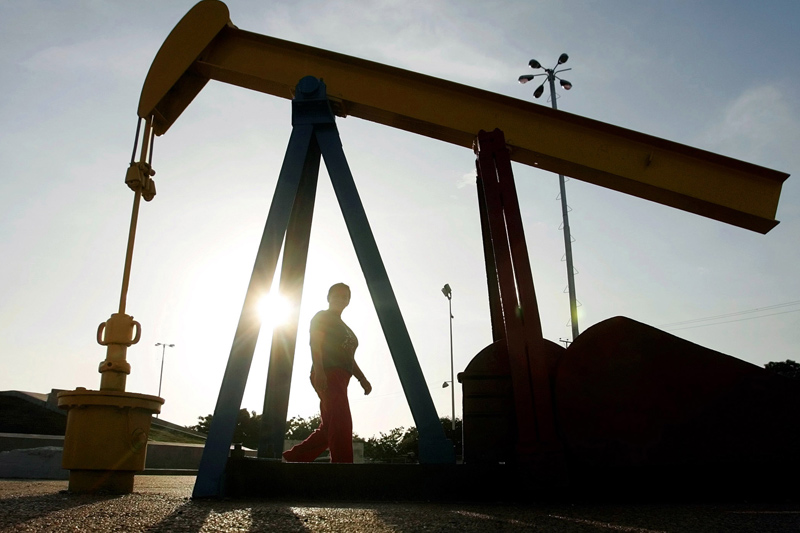Investing.com - Oil prices slipped on Monday morning in Asia as reports over the weekend suggested that the U.S. planned to slap new tariffs on $200 billion worth of Chinese exports, a move that offset fears of supply constraints caused by Washington’s sanctions against Iran.
Crude Oil WTI Futures for November delivery fell 0.07% to $68.72 at 12:50AM ET (04:50 GMT), while Brent Oil Futures for November delivery also edged down 0.01% to $78.08.
U.S. President Donald Trump is ready to impose a new round of tariffs on $200 billion worth of Chinese goods as early as today, a senior administration official told Reuters. The new tariffs may be set at 10%, below the original figure of 25% floated by the administration in the past, the Wall Street Journal reported.
The decision came after the conclusion of public consultations on this new around of tariffs earlier this month. Trump threatened to put tariffs on virtually all Chinese products and dampened expectations about the impact of trade talks with Beijing.
Meanwhile, traders are also paying close attention to the U.S. crude sanctions on Iran, which are set to take effect in November. The country’s oil exports are down by almost a third since the sanctions announcement in April. They dropped below 2 million barrels a day in August and continued to fall in the first half of September.
“The market’s expectation of shortages has cooled after data from last week showed increases in supplies, while investors have lowered the outlook for oil demand,” said Wang Xiao, head of crude research at Guotai Junan Futures.
Iran said on Saturday that Saudi Arabia and Russia have taken the oil market “hostage” as Washington is seeking to slap new sanctions Iran’s oil sales. The U.S. also encouraged oil producers to pump more oil to offset the shortfall from Iran.
“Russia and Saudi Arabia claim they seek to balance the global oil market, but they are trying to take over a part of Iran’s share. Trump’s efforts to cut Iran’s access to the global crude market has prompted Russia and Saudi Arabia to take the market hostage,” said Hossein Kazempour Ardebili, Iran’s OPEC governor.
Last week, U.S. Energy Secretary Rick Perry met with his Russian and Saudi Arabian counterparts. He said the three countries, the three largest oil producers in the world, can raise global output in the next 18 months to compensate for falling oil supplies.
